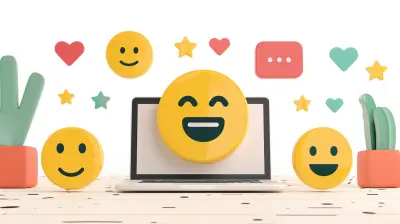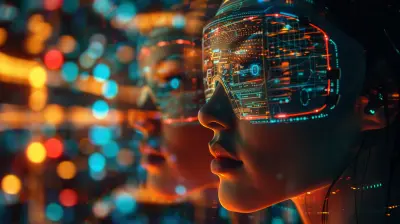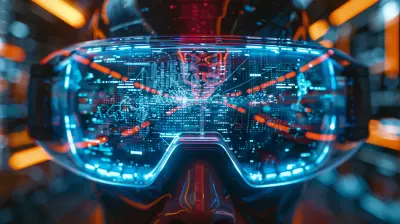How Digital Assistants are Shaping the Future of Work
18 June 2025
Let’s face it—work today looks nothing like it did a decade ago. And one major reason for that? Digital assistants. These virtual helpers once seemed like science fiction, but now they’re nestled right into our daily routines, changing the pace and structure of how we work.
Whether it’s Siri setting your next meeting, Google Assistant answering quick questions, or advanced AI like ChatGPT drafting content or code, digital assistants are no longer just nice-to-haves—they're becoming essential tools for productivity. So how exactly are they reshaping our world of work? Grab your favorite coffee (or tea), and let’s have a conversation about the digital sidekick revolution.
What Exactly Is a Digital Assistant?
Before we dive into the meat and potatoes, let’s start simple. A digital assistant is a software agent that can perform tasks or services based on commands or questions. That includes voice commands, text input, and sometimes a mix of both.Think Apple’s Siri, Amazon’s Alexa, or Google Assistant. But also include workplace-specific ones like Microsoft’s Cortana (RIP, kind of) and AI productivity tools like ChatGPT, Jasper, or Notion AI. These aren’t just answering trivia questions anymore—they’re managing tasks, transcribing meetings, analyzing data, and more.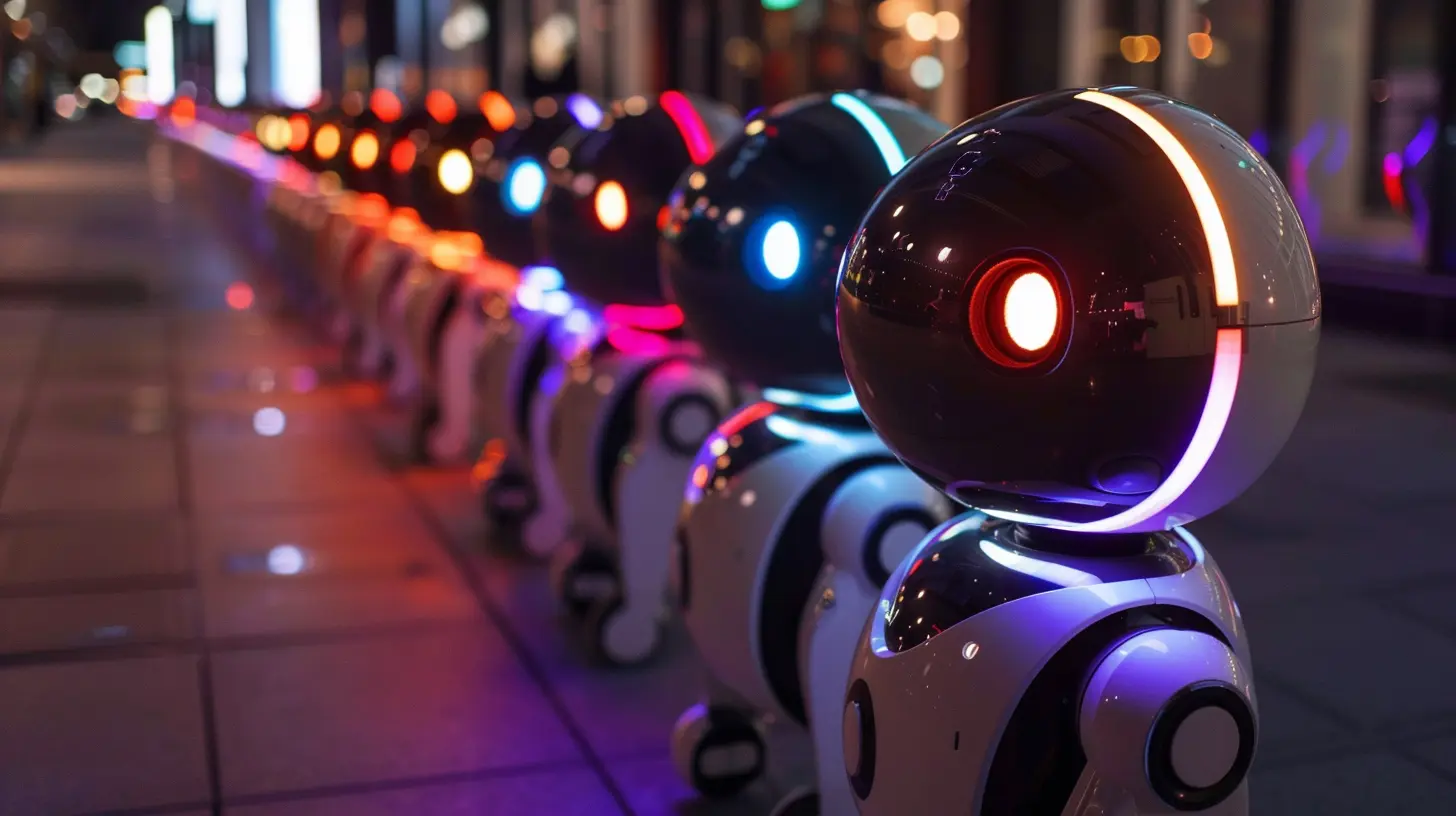
The Age of AI at Work: From Task Automation to Intelligence Amplification
Okay, so let’s get one thing straight. Digital assistants aren’t just automating tasks—they’re making us smarter. We’re entering an era where AI boosts human capabilities instead of replacing them.Automating the Boring Stuff
No one really likes scheduling, do they? Coordinating meetings, sending reminders, filling in timesheets… blah. That’s where digital assistants shine. They take over all those repetitive, low-value tasks.Ever used Calendly or Microsoft Outlook’s Scheduler? With a few clicks or a simple voice command, meetings are arranged, calendar conflicts are sidestepped, and you can go back to doing real work—like thinking, creating, or managing your team.
Boosting Decision-Making
Modern digital assistants use AI to provide smart recommendations. For instance, sales teams are leveraging platforms like Salesforce Einstein to get real-time insights about customer behavior. These tools analyze tons of data faster than any human could, then suggest next best steps, highlight potential risks, or even predict future outcomes.It’s like having a mini data scientist whispering in your ear all day—without the consulting fees.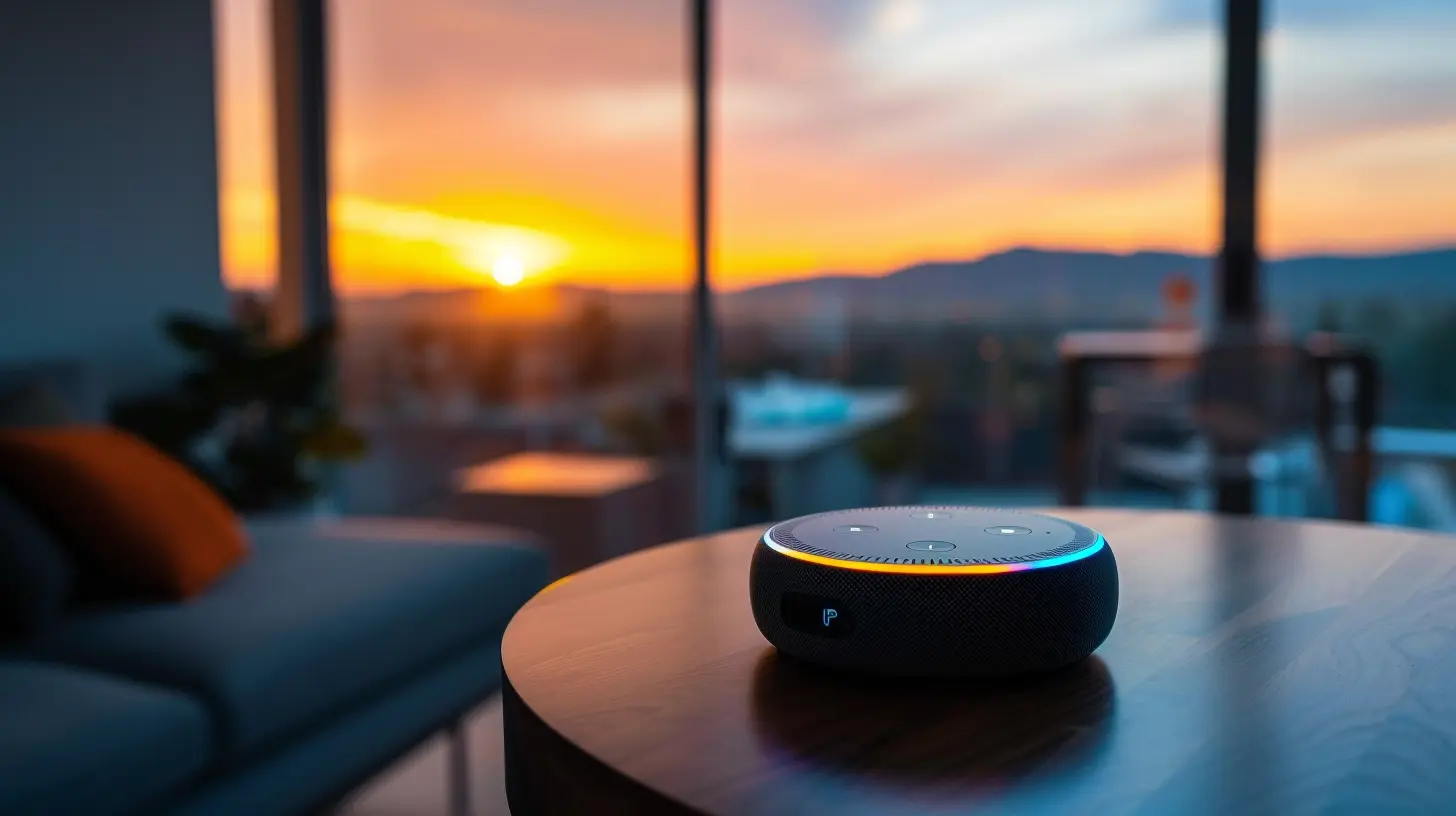
ChatGPT and the Rise of Conversational AI in the Workplace
Would you believe that over 100 million people signed up for ChatGPT within months of launch? That’s not just a tech trend—it’s a workplace game-changer.Writing, Drafting & Editing
If you’re in marketing, communications, or even HR, chances are you’ve already tapped into ChatGPT or similar tools for help with writing. Whether it's drafting a report, summarizing a meeting, or crafting an email, these assistants save hours of time while elevating the quality of content.They won’t steal your job—but they sure can help you stop staring at a blank Google Doc.
Coding and Development
Even software engineers are jumping on the bandwagon. Tools like GitHub Copilot use AI to suggest code snippets, debug errors, or even write entire functions. That’s not just cool; that’s revolutionary. Developers can now focus on solving real problems rather than wrestling with syntax.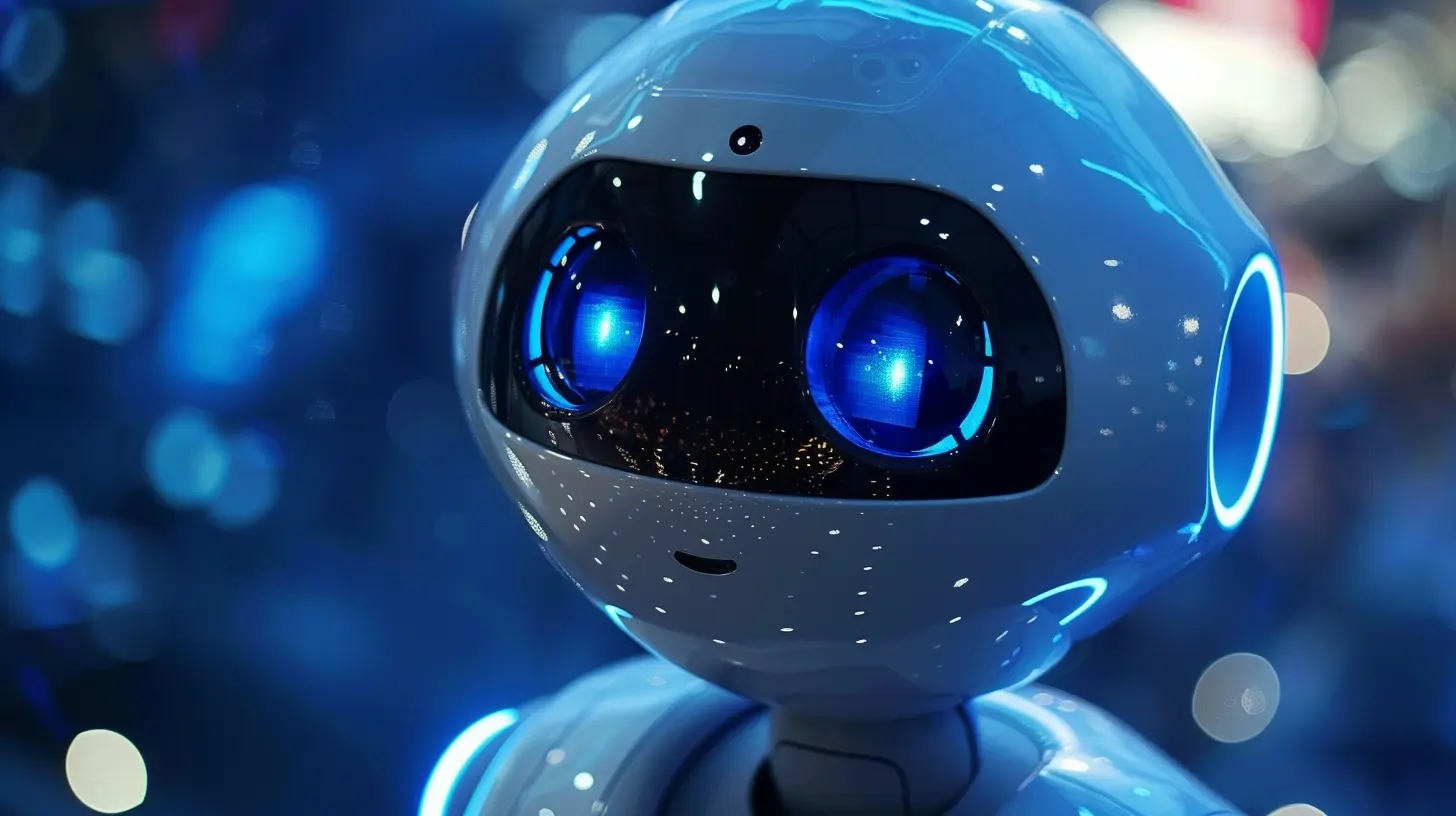
Redefining Productivity: Less Hustle, More Smart Work
Let’s debunk a myth—being busy doesn’t mean you're being productive. Digital assistants are flipping the script on what it means to work "hard."Personalized Workflows
Imagine your work tools understanding your habits and preferences. Digital assistants powered by machine learning get better at this over time. They learn when you're most productive, what tasks take you longer, and how you like to communicate. Then they tailor your workflow accordingly.That’s not just efficiency—it’s personalization at scale.
Real-Time Collaboration
In tools like Slack, Microsoft Teams, and Zoom, AI-powered assistants now provide on-the-fly transcription, action item tracking, and even summarize meeting highlights. If you’ve ever zoned out in a meeting (we’ve all done it), these assistants catch everything so you don’t have to.Now, you can focus on ideas instead of juggling meeting notes or deciphering someone’s rambling.
The Remote Work Revolution: How Digital Assistants Became Icons of the Hybrid Office
It’s no mystery that remote work exploded during the pandemic, but digital assistants were the unsung heroes that held it all together. They became the bridges connecting remote teams, automating mundane processes, and ensuring communication stayed on point.Virtual Meeting Assistants
Remember when someone had to volunteer to take notes in every Zoom meeting? Good times. Now, AI like Otter.ai or Fireflies takes care of that. They join your meetings, record the conversation, transcribe it, and even point out key action items.It’s like having an intern that never complains or needs coffee breaks.
Supporting Asynchronous Work
With teams spread across time zones, asynchronous communication is key. Digital assistants help bridge the gap. For example, an AI can summarize yesterday’s updates, generate to-do lists, or even answer common questions from new team members—so you don’t have to hop on a 4 AM call with someone in Tokyo.Upskilling with AI: The New Learning Curve at Work
Let’s be honest—we’re all learning as we go. But digital assistants can actually help us skill up while doing the work, turning every interaction into a mini lesson.On-the-Fly Learning
Whether it’s asking Excel formula questions or needing help understanding a new programming language, digital assistants provide real-time support. You get answers exactly when you need them—without digging through endless PDFs or YouTube tutorials.It’s like having a patient, super-nerdy friend on call 24/7.
Democratizing Knowledge
Not everyone has access to a mentor or years of experience. But with AI and digital assistants, you lower the barrier to entry. Junior team members can get the boost they need to jump into complex tasks with confidence.And heck, even the pros keep learning new tricks with AI by their side.
Are Digital Assistants Replacing Jobs?
Ah, the million-dollar question. Are we working with digital assistants or working against them?Here’s the truth: some jobs will undoubtedly evolve or fade away. Routine tasks that once required human muscle are now being done fast and cheap with software. But instead of full-scale replacement, the smarter perspective is integration.
Think of digital assistants the same way we think of calculators, washing machines, or spell check. They remove friction, allowing us to focus on higher-value, creative tasks.
Those who leverage these tools will thrive. Those who ignore them? Well, they might find themselves one step behind the rest.
Privacy, Ethics, and the Trust Dilemma
Of course, it’s not all sunshine and high-fives. With digital assistants monitoring our calendars, reading our emails, and managing our workflows, privacy is a huge concern.Data Concerns
Who owns the data? How is it being stored and used? Are conversations with a digital assistant secure?As companies lean harder into digital assistant tools, there needs to be transparency. Employees need to feel comfortable knowing their interactions aren’t being used against them or mined for unethical purposes.
Human Oversight
No AI is perfect. Errors still happen. If a digital assistant misinterprets a command or suggests the wrong action, there has to be a human in the loop to catch and correct it. We can’t fully offload our judgment just yet.For now, the sweet spot lies in AI-human collaboration—not substitution.
What’s Next? The Future of Digital Assistants at Work
As we look ahead, the capabilities of digital assistants will only grow. Expect deeper integrations, smarter behaviors, and even anticipatory actions where assistants complete tasks before you ask.Imagine walking into your home office and your assistant already has your reports drafted, your emails sorted, your agenda summarized, and your coffee order ready—all before your cat can knock your mug off the desk.
That’s not just the future of work. That’s the future of a better work-life balance.
Final Thoughts: Embrace the Change, Don’t Fear It
Digital assistants are not just gimmicks—they’re becoming indispensable. They’re changing how we think, how we act, and how we collaborate. If you embrace them, you’re setting yourself up for a more efficient, balanced, and impactful career.Remember, it’s not about letting AI do everything. It’s about freeing yourself from the mind-numbing tasks so you can do the meaningful ones. So, go ahead—delegate to your digital assistant, and take back your time.
The future of work isn’t robots taking over. It’s humans working smarter—with the right tech by our side.
all images in this post were generated using AI tools
Category:
Digital AssistantsAuthor:

Jerry Graham
Discussion
rate this article
2 comments
Soliel Robinson
Thank you for exploring the fascinating impact of digital assistants on our work lives! Your insights into how these technologies are transforming productivity and collaboration are truly enlightening. Excited to see where this journey takes us and how it can enhance our daily workflows!
October 7, 2025 at 12:14 PM

Jerry Graham
Thank you for your kind words! I'm glad you found the insights valuable and share the excitement about the future of digital assistants in our work lives.
Brick Gonzalez
Digital assistants are revolutionizing the workplace by enhancing productivity and streamlining tasks. Their integration into daily operations not only saves time but also fosters collaboration, allowing employees to focus on higher-level strategic initiatives. The future of work looks promising with this technology.
June 19, 2025 at 4:19 AM

Jerry Graham
Thank you for your insightful comment! I completely agree that digital assistants are transforming the workplace by boosting productivity and enabling better collaboration, paving the way for a more strategic focus in our daily operations.
